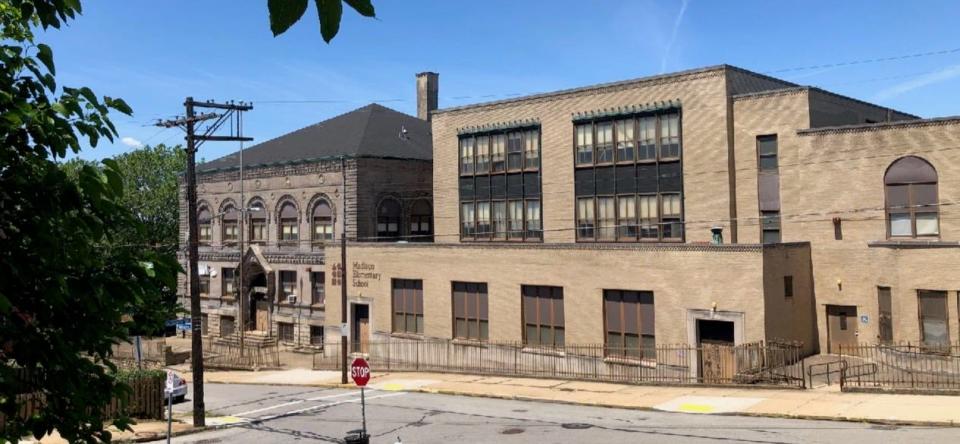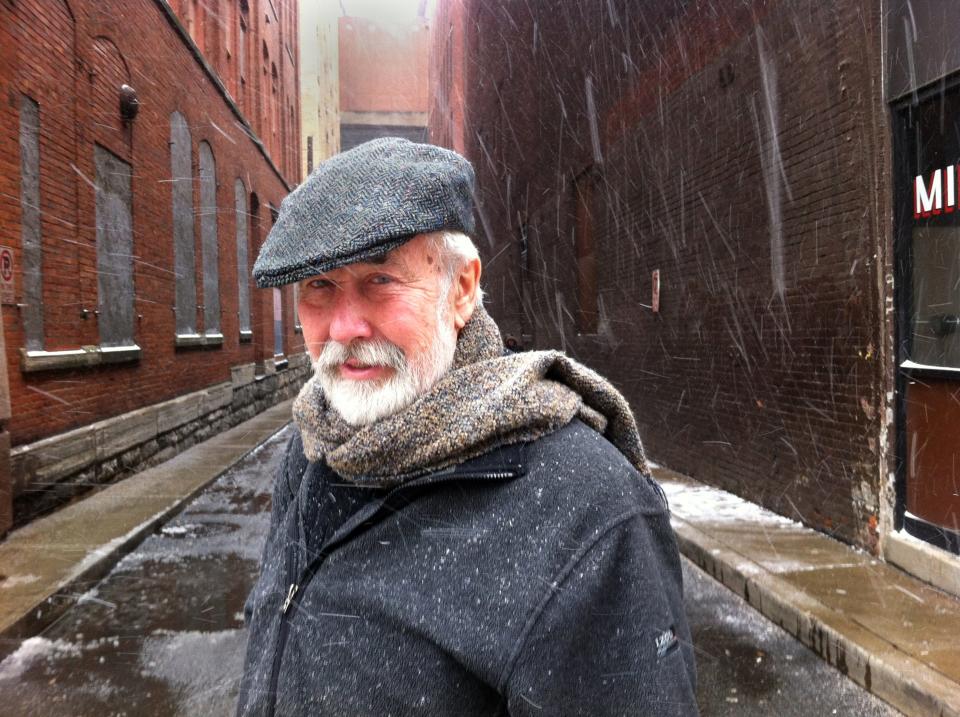Freedom man debuts musical same day he grand marshals Pittsburgh parade
FREEDOM – On the morning of March 11, Ray Werner will put on his sash and ride through the streets of Pittsburgh, waving to tens of thousands of people ― as duty demands since he's grand marshal of the 2023 Pittsburgh St. Patrick's Day Parade.
Later that evening, with his sash safely stowed, Werner will take a curtain call bow after his musical "Shantytown: The Ballad of Father James Cox," premieres as the first-ever show at the brand-new Pittsburgh Playwrights Theatre at Madison.
It shapes up to be quite a day for Werner, an 84-year-old Freedom native.
"I'm flabbergasted," he said.
Like the stories he loves to read and write, there's a compelling thread of events woven into his big day as parade marshal/musical composer.
Long purported to be the second largest St. Patrick's Day event of its kind in the U.S., the Pittsburgh parade ends its route on Stanwix Street in front of the Red Door, a downtown ministry that feeds the poor, which is what the protagonist of his musical ― a real-life Catholic priest ― did.
Werner hopes to tie it all together, perhaps with his parade vehicle trailed by volunteers handing out fliers for regional organizations that feed the homeless, while also publicizing the "Shantytown," which via auctions and word-of-mouth will raise money for similar charities.
"Shantytown" opens March 11-12 and runs the following two weekends, Thursdays through Sundays, with two matinees, at Pittsburgh Playwrights Theatre at Madison, located in a historic old school building in the city's Upper Hill District (3401 Milwaukee St.) several blocks from Polish Hill. Tickets are at pghplaywrights.org

The musical took Werner three years to write.
"My COVID project, you could say."
Just like his full-length play "Run the Rabbit Path," staged in 2019 at the Fred Rogers Studio at WQED-TV, Werner traces this new musical's origins to his Freedom upbringing during the 1940s and '50s.
Freedom man's play premieres'A true story that never happened'

"At a recent talk, I gave all the credit to growing up in Freedom, to our parents, and the gift of relationships they taught all their children. And there are a few songs that originated at 1000 Sixth Ave."
That's the address of the wood-frame Freedom house where his parents, Pauline and Chuck Werner, were well known for their generosity, opening the doors to family, friends and neighbors hungry for a warm meal or lively conversation.
Freedom was a railroading town then, and Werner vividly recalls a Sunday morning when a hobo who'd been riding the rails knocked on their door in quest of a meal. Pauline and Chuck offered him a meal from a big pot of homemade chicken noodle soup and a loaf of bread, inviting him to stay on their porch but explaining the family couldn't stay to talk, because Mass was starting soon at St. Felix Church.
The Werners left their house unlocked, and upon returning from Mass, "found him in the kitchen scraping the bottom of the soup pot with his last piece of bread," Werner said. "I remember that so vividly".
The family ended up feeding other rail-bound drifters, and it wasn't until years later Werner learned hobos often "marked" with symbols any house that was "an easy hit" for scoring a free meal.
That knowledge supplied the creative spark for "Put a Mark on Your Life," one of Werner's 18 original "Shantytown" songs.
Set in the early 1930s, "Shantytown: The Ballad of Father James Cox" features a seasoned cast including Michael Fuller, an instructor at Pittsburgh's CAPA school, in the title role.
Presented as the lead-off show for Pittsburgh Playwrights' 20th anniversary season, the producer, Mark Clayton Southers, is an award-winning playwright, stage director, scenic designer, photographer and theatrical producer from the Hill District, who founded and served as producing artistic director of the Pittsburgh Playwrights Theatre Company.
“Ray Werner is one of our company's most produced playwrights," Southers said. "It's indeed an honor to producehis newest work. What I really love about Ray’s musical is that it's an authentic tale of early Pittsburgh and it features real and fictitious characters that come together to tell, sing and dance the story. Most importantly, theylook and sound like the Pittsburghers of yesteryear that helped to build up our city.”
Two of Pittsburgh's most esteemed Irish folk musicians, Mike Gallagher and Bruce Foley, helped arrange the music.
"It's everything from ragtime to rap, from gospel to vaudeville, from ballads to novelty, some short and sweet and others that will make you catch your breath ― hopefully ― or laugh out loud. It’s a vaudeville approach, with a surprise every several minutes moving our story along and sending you home with a new song or two in your head. Perhaps one with which you’ll be humming yourself to sleep, or helping you wake up with a smile," Werner said.
"Shantytown" is inspired by Father James Cox, a priest at St. Patrick's Church in Pittsburgh's Strip District, who came to be dubbed Pastor of the Poor and Mayor of Shantytown for his tireless work helping people deprived of a home and job by the Great Depression.
"When the bottom fell out in 1929, he fed almost 3 million people," Werner said.
Werner hopes the musical will shed light on the overlooked historical figure who took his fight for the poor to the White House and Capitol, leading a 25,000-man march on Washington, D.C., in 1932, to peacefully protest for government action to create jobs. Cox ended up running for president, launching what he called The Jobless Party. Without the financial war chest of the major political parties, he backed out months later, but historians credit his ideas with inspiring a few of President-Elect Franklin Roosevelt's New Deal policies.
It's a largely overlooked, 90-year-old story with modern parallels, as another Depression has been forecast, and Pittsburgh has seen "tent town" encampments of homeless crop up recently, particularly along the Allegheny riverfront trail near the 10th Street Bypass.
More:TV series featuring 2 Beaver County women gets February premiere date
In writing the show, Werner aimed for an adage about great theater productions:
"It doesn't answer questions, it asks the questions, and you have to answer them."
To raise awareness of the homeless, and some funds, Pittsburgh Playwrights plans an auction of gifts from The Strip District after each performance, and a stage talk-back with someone from The Red Door ministry after one of the performances.
"The homeless theme will be part of our marketing strategy and included in any remarks I make at several St. Patrick’s Day Parade activities, including the kickoff Communion Breakfast with the Bishop on March 5," Werner said, as well as his parade fundraising appearances at Mullaney's Harp and Fiddle pub and The Priory Hotel, and his promotional stops at Pittsburgh City Council Chambers and KDKA's "Pittsburgh Today Live" on March 10.
Scott Tady is entertainment editor at The Times and easy to reach at stady@gannett.com.
This article originally appeared on Beaver County Times: Freedom man debuts musical, serves as Pittsburgh parade grand marshal

